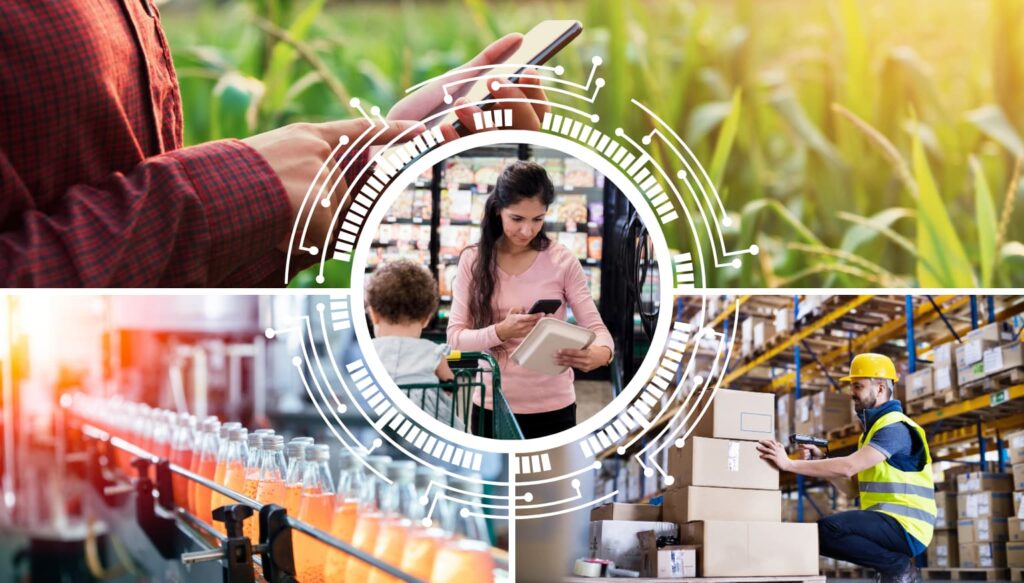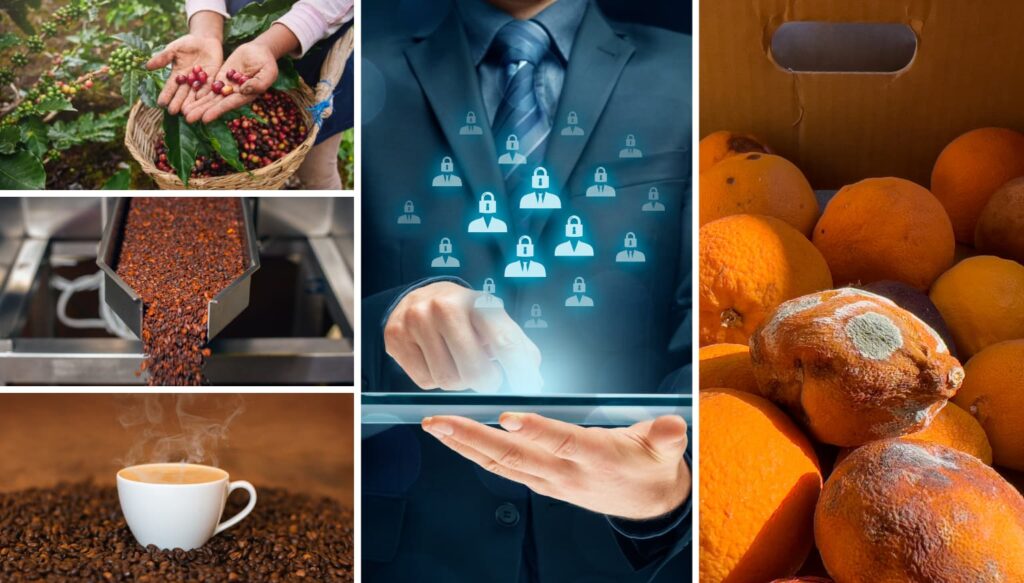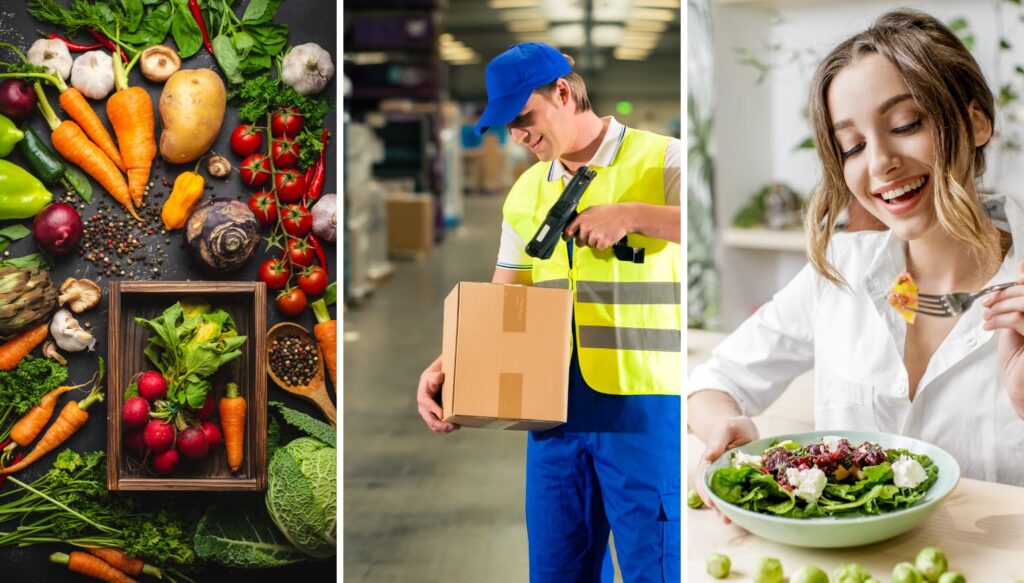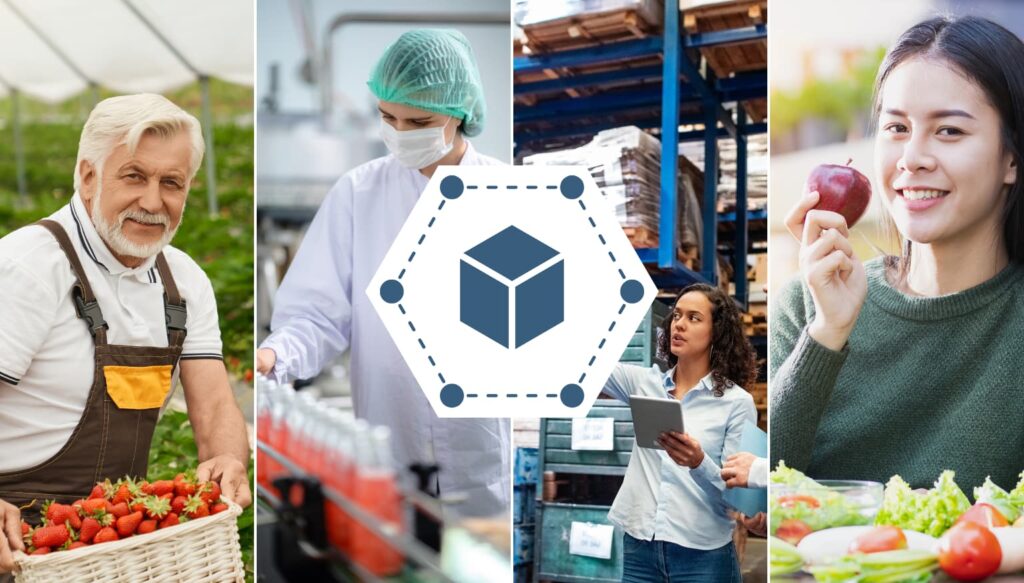Trust in the food supply chain at all levels is crucial because it keeps the food economy moving. As consumers build trust, they spend more, which gives those in the supply chain the resources they need to grow and innovate.
For this reason, it’s important to understand how the food supply chain can stimulate trust. One way to achieve this goal is to introduce and expand blockchain technology. Exploring how blockchain contributes to building trust and ensuring integrity in the food supply chain is an important part of keeping the entire industry moving forward.
Understanding Trust in the Food Supply Chain

The word “trust” can be defined as a fundamental belief that something is good. When it comes to the food supply chain, trust means having confidence that every farmer, facility, transportation vendor, and retailer is being honest about how they’ve grown and handled the food.
Consumer trust dictates how buyers spend their money and whether they believe they have autonomy over their food choices. Because the food supply chain is so interconnected, trustworthiness is critical for other stakeholders as well.
There are barriers to building trust in the food supply chain. This is in part due to a lack of understanding about where consumers’ food comes from and what happens to it before it reaches retail. For this reason, increasing transparency is essential.
Introduction to Blockchain Technology

Fortunately, trust-enhancing solutions are on the horizon, one of which is blockchain technology. Tech giant Amazon defines blockchain technology as blocks of data linked together to form a database.
This type of database has three key features: decentralization, transparency, and immutability. A blockchain database allows for transparent information sharing among a business network because the chronological information it contains cannot be changed (i.e., it is immutable) without permission from the decentralized network.
Blockchain’s Role in Enhancing Trust

Blockchain technology plays three important roles in enhancing stakeholder trust in the food supply chain. The first is that it provides unmatched traceability. It offers a single source of truth to which all vendors and facilities can upload processing and production updates for the entire network to see. This shows what happens to food as it moves from farm to table.
The blockchain also allows for authenticity. Because food is tracked so closely and records are immutable, consumers and retailers can verify that the food they’re buying and eating is authentic.
Finally, blockchain technology can ensure the safety of food products at every point in the food supply chain. The shared database allows for identifying and tracking spoiled or contaminated food, facilitating timely warnings to retailers and consumers. It can also help identify issues with specific vendors and start conversations about corrective actions.
Case Studies: Real-World Applications of Blockchain in the Food Supply Chain

Blockchain technology is already revolutionizing the food supply chain. Fortunately, there are real-world examples to prove it.
Farm-to-Fork Traceability
Discount retail giant Walmart partnered with IBM in 2018 to create a food traceability system based on the Hyperledger Fabric. This system allows them to trace the origins of any food product within 2.2 seconds.
Enhancing Food Safety Standards
Ovo Farm, an egg producer located in India, also uses this technology by providing a QR code on the backs of their cartons. This came in handy in 2023 when a Salmonella outbreak helped them recall those eggs in a timely manner.
Because the QR code provides information about the entire product journey, the company is able to pinpoint possible supply chain issues that led to the contamination and fix them so they don’t occur in the future.
Sustainability Initiatives Powered by Blockchain
Software company BanQu is on a mission to help brands understand how their supply chain partners align with their environmental, social, and governance goals. This blockchain-powered initiative was formed in response to the EU’s due diligence rules that require retailers to vet those in their supply chain to ensure there are no human rights violations.
Benefits of Blockchain for Food Supply Chain Integrity

Many food producers and supply chain vendors are starting to awaken to the benefits that blockchain technology can provide for all stakeholders. These include:
- Increased transparency and visibility
- Increased traceability
- Enhanced consumer confidence in the entire food supply chain
These benefits allow vendor partners to recognize and mitigate issues. They also help consumers make informed choices.
Technology, Honesty, and Trust: A Formula for Food Supply Chain Success

Trust in the food supply chain is all about honesty. When consumers and vendors know that everyone is doing the right thing, it puts all stakeholders at ease. Fortunately, blockchain technology has the power to create this trust through transparency, visibility, and authenticity.
The immutable nature of blockchain databases means that all stakeholders must practice honesty and integrity. For this reason, it’s time for everyone to call for a good-faith exploration and embracing of real blockchain solutions to help us build a more trustworthy food supply chain.
To discover how Farm to Plate can support your food supply chain initiatives, contact our team.
Pramod Sajja, CEO & President at Paramount Software Solutions (farmtoplate.io).
